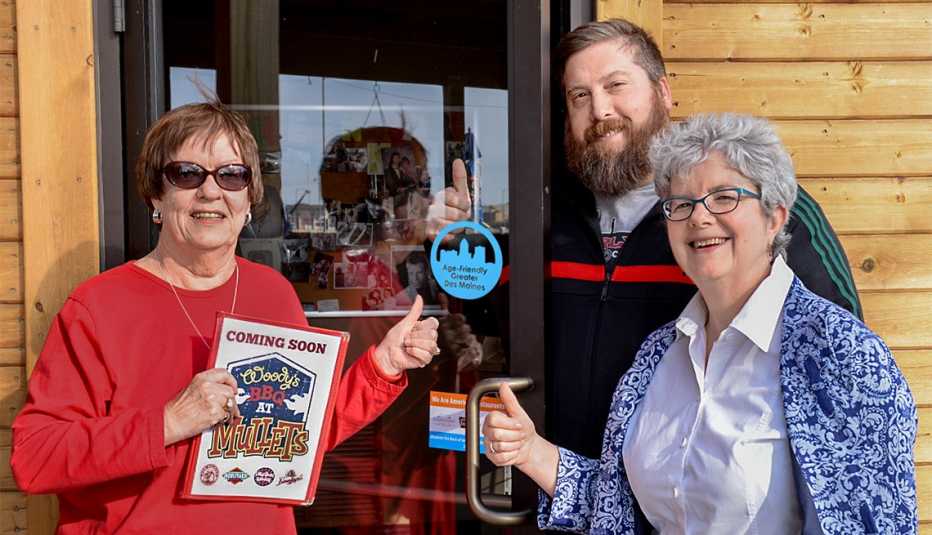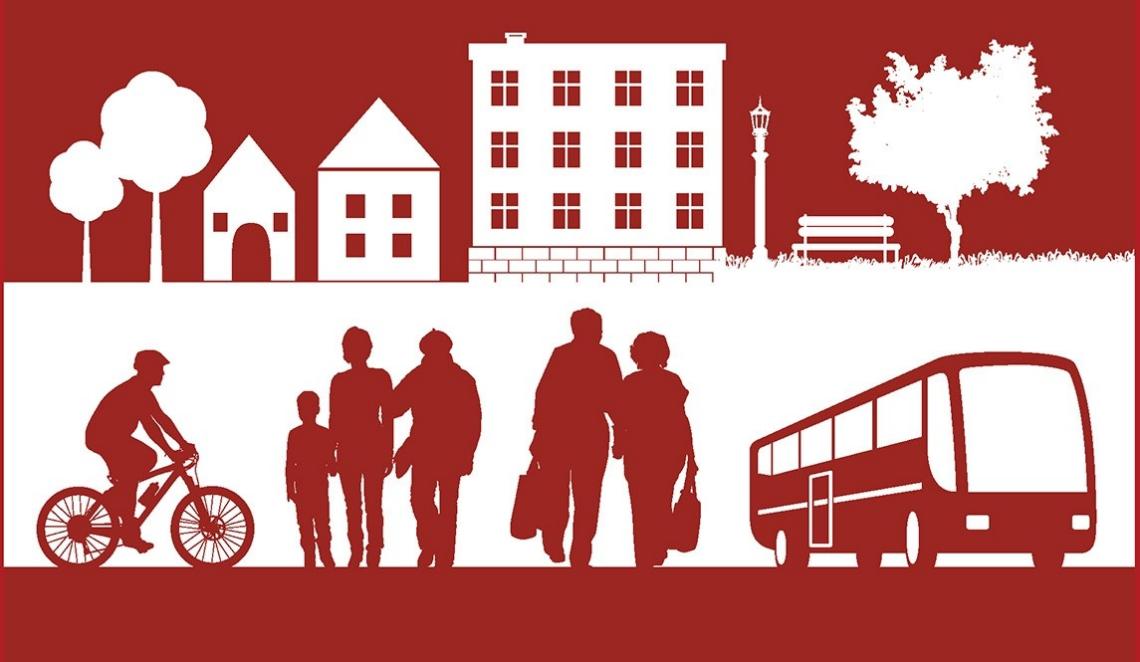AARP Hearing Center
HOST ORGANIZATION: The Street Collective, which works "to connect the community with different modes of transportation for all ages."
CORPS ASSIGNMENT: Increase social media use and engagements; distribute bicycles to under-resourced community members; increase engagement through community events; and help with the city’s transportation and affordable housing plan for four investment districts.
Meet the Corps Team


CORPS MEMBERS
After graduating from Iowa State, Makenna Chapman took a job as the finance manager at a car dealership. “I wasn’t being fulfilled," explains the Des Moines native. "So I began looking for something that would make a direct difference in the community." Chapman went from a car-centric job to one where she helps people access transportation options other than, she says, "just relying on a car.”
Serving in the Livable Communities Corps is Saphire Miles's second AmeriCorps assignment. (Public Allies is an AmeriCorps program.) Her earlier stint was during high school. “I wanted to continue to make a positive impact in the community," says Miles, who hails from Davenport, Iowa, and attends Iowa State.
WHY THE WORK IS NEEDED
The Street Collective's mission is to “champion active transportation options that are accessible, safe and enjoyable for everyone.” Chapman and Miles do most of their work supporting programs and education efforts that focus on helping people get where they need to go without having to rely on a car.
THE ASSIGNMENT
1. Increase social media for Livable Communities initiatives
Chapman and Miles's day begins at 9 a.m. when, due to the COVID-19 pandemic, they each log in from home, talk to one another and come up with a game plan. ("It’s great! I wake up and get out of bed to get ready, and then I return to my bed to start work!" says Chapman.) Miles writes copy for what she'll post that day on Instagram, Twitter and Facebook. Chapman handles the graphics.
A tweet might alert readers to a podcast about cycling culture, an upcoming event, or the status of the Street Collective’s bike repair shop, which had to reduce services during the pandemic but still sells bicycles and parts, does tune-ups and handles bike donations.
The pair produce a monthly Street Collective bulletin and they post videos about bicycle maintenance and cycling activities on You Tube.
“The videos do very well, especially among people that are newer to bike riding," says Chapman. "The shop’s mechanics have the repair and care expertise. Saphire and I do all the film editing, uploading and processing.”
“Makenna and Saphire have been instrumental in rapidly researching and implementing new ways we can use our online presence to better reach people and continue our programs safely,” said Mike Armstrong, the Street Collective's director of planning and communications and the pair’s supervisor.
2. Adapt the bicycle program to meet community needs
More About Iowa


Prior to the COVID-19 pandemic, the Street Collective donated bicycles to low-income families and people with health issues. When the COVID-19 pandemic erupted, the giveaway program kicked into a new and desperately needed gear. “We gave away a lot of bikes to essential workers who had no way to get to work," says Miles. "The buses weren’t running on the regular schedule. If the workers took a bus to work, they might not be able to get home because the buses weren't running that late.”
When an unexpected situation arose, Chapman and Miles did some quick thinking. After hearing that several donated bicycles had been stolen from the Street Collective, Chapman and Miles spread the news on Facebook: “We’re saddened and frustrated to report that last night 15 donated bikes were stolen from our panel truck . . . totaling $3,500.” As a result of the post, “we got overwhelming community support in the form of comments and bike donations,” says Chapman.
3. Increase engagement in community events
In a typical year, the Des Moines Street Collective hosts several community events, including during National Bike Month (held annually in May). With all in-person Bike Month events cancelled due to COVID, Chapman and Miles created a Virtual Scavenger Hunt.
“The hunt was based within a mobile app where we loaded 'missions' people could do to be active — inside or outdoors — in a socially distanced spot," explains Chapman. The missions included activities to send bicyclists on a journey, such as “Find a mural downtown that features flora or fauna" or “Pick up a takeout menu from Fong’s Pizza.” The winners were announced on the collective's social media platforms.
CHANGE OF PLANS
COVID made a fourth assignment, to “help with the city’s transportation and affordable housing plan for four investment districts,” impossible to pursue since the planned work involved direct, in-person activities in communities.
When the Black Lives Matter protests and calls for racial equity took hold across the nation in June, Chapman and Miles added an unofficial fourth component to their mission. As described by their supervisor, Armstrong, “The Street Collective opened up an internal dialogue among the staff and board members in order to explore how our organization is effected by and hindered by racial inequity, and how it may enable white supremacy and institutional racism. I've been incredibly impressed by the bravery and sensitivity of Saphire and Makenna in leading a staff-wide discussion about racism and new ways forward. That's a difficult conversation to lead, doubly so as the youngest and newest members of the team.”
CONTINUING GOALS
Chapman and Miles will continue their work until the end of 2020. Among their to-dos:
- Facilitate another conversation with the board of directors about race and racial injustices
- Create videos that showcase the work of the programs.
- Continue increasing transportation options so people can get around the city without having to drive
- Promote the health and mobility benefits of bicycling and walking (for people of all ages)
- Keep members engaged, even when they can’t be physically engaged
- Continue educating the public about the collective’s mission
- Work toward ensuring that everyone who engages with the Street Collective feels safe and included. (e.g., "It’s one thing to say, ‘Our doors are open, everyone just come in.’ But it’s another to say, “We are inviting you in. You’re welcome here. Please come.”)
Reporting by Amy Lennard Goehner
More About the Corps
- Read about another Livable Community Corps community
- Read the Public Allies and AARP call for applications



































































